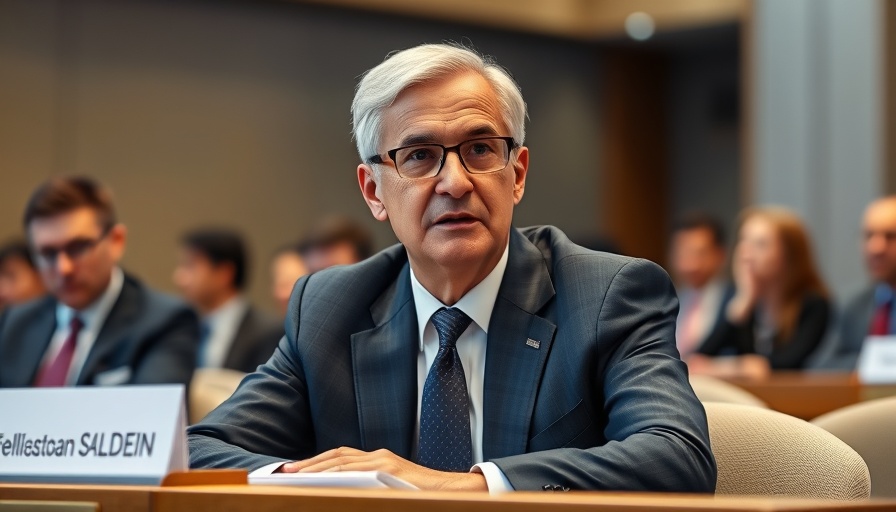
Europe Steps Up to the Plate: Aiming for Peace with Iran
In an escalating conflict characterized by missile exchanges between Israel and Iran, top diplomats from Britain, France, and Germany convened in Geneva last Friday to seek a diplomatic off-ramp to this tense standoff. This meeting, attended by Iran's foreign minister, Abbas Araghchi, reflected Europe's renewed commitment to dialogue amidst a dire situation.
Despite the significance of the talks, no concrete breakthroughs were achieved, as Araghchi held a firm stance, declaring that Iran would only engage in diplomacy after 'the aggressor' was made accountable for its transgressions. Nevertheless, he indicated a willingness to continue discussions with European leaders.
Continuing Diplomatic Dialogue in a Volatile Environment
The urgency of the situation was made clear by statements from British Foreign Secretary David Lammy, who emphasized the importance of maintaining dialogue to prevent a broader military conflict. His counterpart from France echoed similar sentiments, noting that “there is no definitive military solution to the Iranian nuclear problem,” reinforcing Europe’s preference for negotiation over aggression.
These diplomatic efforts come at a consequential time, as tensions have reached extreme levels, with both sides exhibiting readiness for military engagement. The European Union's role is particularly crucial now, as the continent seeks to mediate tensions that could spiral out of control.
Regional Reactions and Implications
The implications of the talks extend far beyond the negotiating table. The rising tensions play into a larger geopolitical web, impacting regional security and international relations. Should diplomacy fail, the potential for larger military engagements could alter the balance in the Middle East.
Furthermore, there lies an uncertainty over the involvement of the United States. President Trump's comments highlighted skepticism over Europe's role, stating that Iran is more inclined to negotiate with American leaders rather than their European counterparts. This perspective raises questions about future cooperation between nations in addressing serious global issues.
Future Predictions: What Lies Ahead?
As discussions continue, analysts predict a few key outcomes. First, the pressure on Iran will likely increase to respond to the West's diplomatic overtures. The international community remains watchful, understanding that any aggressive maneuvers could have dire consequences, not only for Iran and Israel but across the region.
Moreover, should these talks continue without success, we might observe a shift in strategy, with European diplomats potentially aligning closer with U.S. perspectives to effectively address Iran's nuclear ambitions.
Engagement Strategies Going Forward
Encouraging diplomatic engagement is paramount during such times of crisis. Stakeholders must foster transparent communication lines to ensure that all involved parties are heard and that their concerns are addressed. Recognizing the ruthlessness of military escalation can motivate leaders to prioritize diplomatic solutions with renewed vigor.
A Call for Public Awareness and Action
As citizens of the world, staying informed and engaged with these diplomatic efforts is crucial. The outcomes of such negotiations impact global relations, trade negotiations, and security measures that reach even our local communities. Being aware of the stakes involved allows for informed discussions and active civil engagement in advocating for peace-oriented foreign policies.
 Add Row
Add Row  Add
Add 




 Add Row
Add Row  Add
Add 

Write A Comment